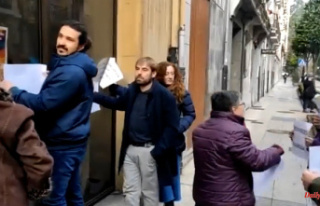"Let it be light for you" has become a colloquial expression that we use to wish someone to recover soon from some adverse circumstance or simply that a certain moment is not too heavy or bad. However, perhaps more than one would think twice before intoning the phrase, if they took into account that the locution comes from a funerary inscription: "may the earth be mild to you".
"May the earth be light to you" is the translation of Sit Tibi Terra Levis, a very popular epitaph in the pre-Christian Roman world, often engraved on tombstones with the initials S.T.T.L. It was a kind of farewell and a wish from those close to the deceased for his loved one to enjoy a quick transcendence into the afterlife.
This Latin allocution evokes the hope that the deceased will not spend a long time supporting the weight of the earth with which he has been buried, that is, that the essence of the individual will soon separate from the body to reach the underworld.
The first to use this phrase were the Greeks, since its origin is found in the work Alcestes (438 BC) by the great tragic poet Euripides, they point out from the Badalona Museum. The expression appeared in other writings by classical authors and on tombstones over the following centuries, sometimes with some variations such as "may the earth be light" (Terra levis sit or T.L.S.) or "may the earth be light for this one ( Sit ei terra levis or S.E.T.L.).
It is necessary to wait until the fourth century for the Latin phrase Requiescat in pace (RIP) to prevail, used by the Catholic Church in funeral rites, while the Castilian abbreviation, DEP (Rest In Peace), will not begin to be seen until the century XVIII.
S.T.T.L., T.L.S, S.E.T.L., R.I.P or D.E.P. All these abbreviations are epitaphs, farewells that reflect the age-old belief that the soul of the deceased will find peace and rest after death, either in the underworld of Hedes or in the heaven of Christ.
According to the criteria of The Trust Project












